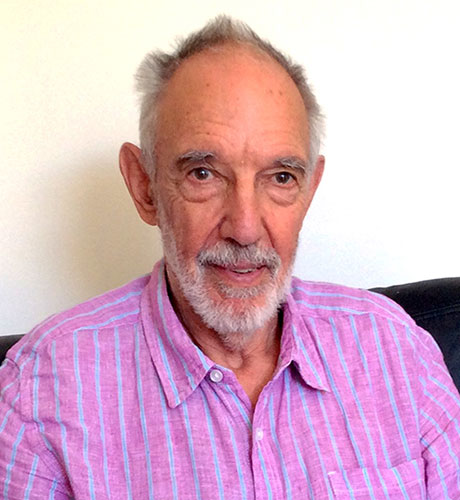Advance decisions to refuse treatment can help families avoid the agony of making decisions in times of crisis, says Isky Gordon
 My feisty mother died in her 90th year. She entertained 15 family members to dinner on a Friday night and the next day had a stroke. My brother and I were clear that she should be kept comfortable, with good nursing, but receive no active treatment. Some of my mother’s grandchildren were unhappy with this plan.
My feisty mother died in her 90th year. She entertained 15 family members to dinner on a Friday night and the next day had a stroke. My brother and I were clear that she should be kept comfortable, with good nursing, but receive no active treatment. Some of my mother’s grandchildren were unhappy with this plan.
Family tension grew, so we organised for the district nurse, a palliative care consultant, the GP, as well as my brother (a doctor), one niece (a doctor), and myself to meet in my parents’ flat to plan her care. Our father was too upset to join in. The atmosphere was strained until the GP produced a 10 year old letter he had received from my mother stating that she did not wish her life to be prolonged if she was likely to end up severely handicapped. The palliative care consultant believed that the stroke was severe and that any recovery would be minimal. All the family then agreed to no active intervention that would prolong life.
In the wake of this experience, when I retired from Great Ormond Street Hospital for Children, I decided that I would do my best to help other families avoid the agony and tensions of making decisions in times of crisis. We created a charity, My Living Will, to promote the Mental Capacity Act [2005]. The charity produced an interactive website with information and the ability to generate a personalised, individualised advance decision to refuse treatment (ADRT), as well as a statement of preferences and wishes. We co-opted an expert panel of senior doctors, nurses, a psychologist, ethicist, and legal experts to help create the website.
All residents in care homes have “care plans” and most include a DNACPR (Do not attempt cardiopulmonary resuscitation). However, almost no plans consider what the patient would like should they get a life threatening infection, develop a new disease, or have a serious fall. Many staff say that they are unaware of the possibility of making an advance decision to refuse treatment as part of the care plan.
Having visited many care homes, and as an honorary consultant to a memory service in central London, I have talked to the staff as well as seen clients and their families in their homes. Fewer than 3% of clients have ADRT plans. The reasons for this vary. Staff say: “I don’t want the client to think that I want them to die”; “The client and family will take it the wrong way”; “I haven’t been trained to talk about this;” “I have a big case load and there is no time.” Some staff have little knowledge of ADRTs and think it isn’t legally binding and so may not be respected.
Clients and families are also unaware of the possibilities of making an advance decision to refuse treatment. When I was facilitating a dementia support group of carers, one woman suggested that our discussion had come too late for her mother with severe dementia. The daughter is one of several siblings, and there has not been any discussion about their mother’s treatment. When she and I discussed the value of all the siblings talking about different scenarios, she was greatly relieved that the burden of decisions would not be left to her.
I also visit a hospice on a weekly basis. Outpatients and their families are referred for discussion on ADRTs. Most of these patients, who are at the end of their life, have had conversations about advance care plans, but few have detailed knowledge of the ADRT. A patient with a progressive fatal neurological condition expressed his gratitude for the various conversations I had with him and his wife. He said that there was simply no time for such conversations in routine consultations. Another patient with terminal cancer came alone in to the consulting room and told me that he knew nothing about end of life plans and asked me for help and advice.
The Mental Capacity Act [2005] created the ADRT. It is legally enforceable in England and Wales. However, the ADRT must state the specific treatment to be refused and the circumstances at that time. This requirement is a serious stumbling block, but it can be addressed by considering the major problems that patients may face at the end of life.
Almost all levels of healthcare professionals face barriers to discussing making an ADRT for many different reasons: frightening the patient, anxiety within themselves, the sheer difficulty of starting the conversation, and the lack of time for continuing conversations. They feel they need training and support. Likewise, families and patients need ongoing conversations with trusted professionals to make their own ADRT. We still have a long way to go before we overcome the social barriers that prevent us from talking more openly about dying and the right to refuse treatment.
Isky Gordon is emeritus professor in the developmental imaging and biophysics section at UCLGreat Ormond Street Institute of Child Health, London. He works as an honorary consultant at Camden memory clinic, London and holds an honorary research post at the Marie Curie Hospice in Hampstead.
Competing interests: I have read and understood BMJ policy on declaration of interests and declare the following interests: None.
